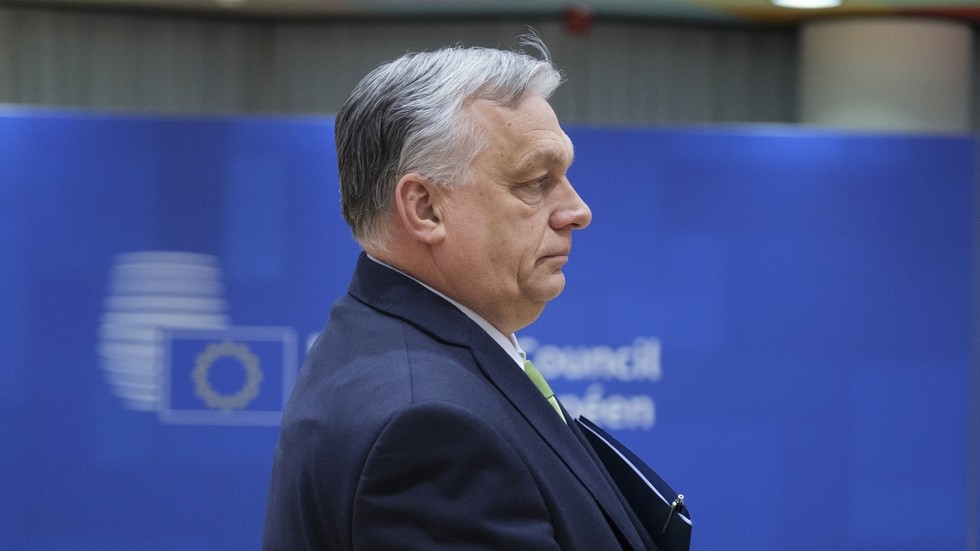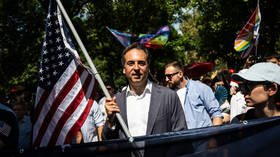
Budapest did not subscribe to same-sex marriages or war with Russia when it became a member, the prime minister says

FILE PHOTO: Hungarian Prime Minister Viktor Orban attends a meeting of EU leaders. © Thierry Monasse / Getty Images
When Hungary joined the European Union 20 years ago, it did not expect some of the radical changes that the bloc has since undergone, Prime Minister Viktor Orban has said.
Hungarians overwhelmingly voted for their country to become an EU member in 2003, with the accession finalized on May 1 of the following year. Orban was a strong proponent of the move at the time.
However, the policies of the bloc have significantly changed since then, the Hungarian leader noted during his regular Friday appearance on Kossuth Radio. He still believes that being part of the union is in the national interest, but listed several points on which he disagrees with Brussels.
When Budapest joined the bloc, it did not expect to be forced to take in immigrants from other parts of the world or pressured over its constitutional protection of the family, defined as being based on a marriage between a man and a woman, Orban said.

Read more
Accession “wasn’t about the European leaders maneuvering the continent into a war instead of peace,” he added, referring to the arming of Ukraine against Russia.
The prime minister urged EU citizens to vote in the upcoming European Parliament elections for parties that support a peaceful resolution of the Ukraine conflict, including the Orban-led Fidesz Party in Hungary.
If a significant number of pro-peace candidates become MEPs, “we can have a European Parliament that does not push European leaders towards war, but pulls Europe back from the edge of the abyss,” he argued.
Earlier this week, Hungarian Foreign Minister Peter Szijjarto said Budapest would oppose a plan proposed by NATO Secretary General Jens Stoltenberg to establish a €100-billion ($107 billion) five-year aid scheme for Kiev.
READ MORE: US issues veiled threat to Hungary
Hungary has been a member of the US-led military bloc since 1999. In March, American Ambassador to Hungary David Pressman accused Orban’s government of undermining NATO’s commitment to Kiev and of “standing with Russia.”




